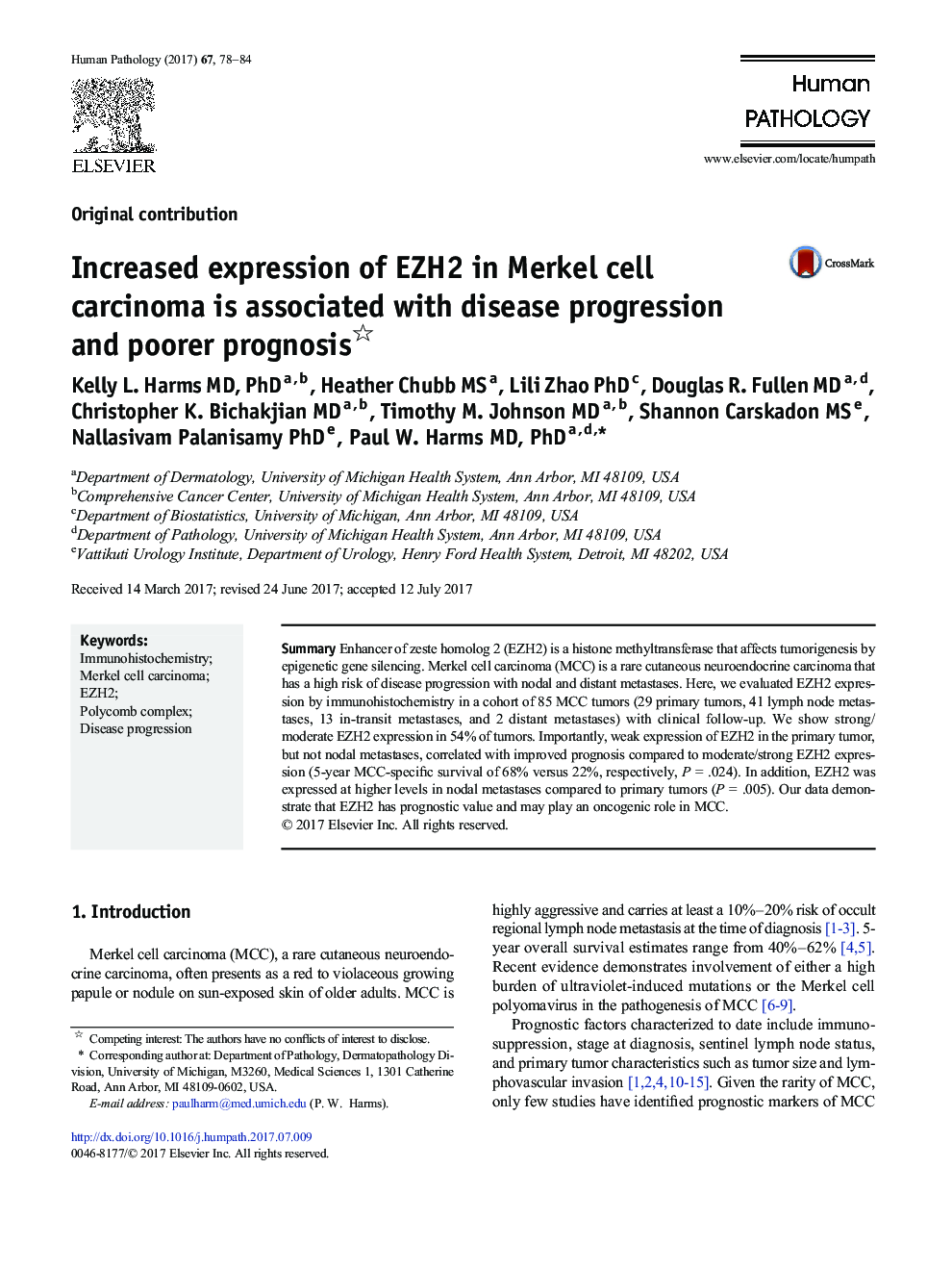| Article ID | Journal | Published Year | Pages | File Type |
|---|---|---|---|---|
| 5716237 | Human Pathology | 2017 | 7 Pages |
â¢EZH2 is a histone methyltransferase that affects tumorigenesis by epigenetic gene silencing.â¢We found strong/moderate EZH2 immunohistochemical expression in 54% of MCCs.â¢EZH2 is expressed at higher levels in nodal metastases compared to primary tumors.â¢Weaker EZH2 expression in primary tumors correlated with improved prognosis.â¢These findings suggest EZH2 may play a role in MCC progression.
SummaryEnhancer of zeste homolog 2 (EZH2) is a histone methyltransferase that affects tumorigenesis by epigenetic gene silencing. Merkel cell carcinoma (MCC) is a rare cutaneous neuroendocrine carcinoma that has a high risk of disease progression with nodal and distant metastases. Here, we evaluated EZH2 expression by immunohistochemistry in a cohort of 85 MCC tumors (29 primary tumors, 41 lymph node metastases, 13 in-transit metastases, and 2 distant metastases) with clinical follow-up. We show strong/moderate EZH2 expression in 54% of tumors. Importantly, weak expression of EZH2 in the primary tumor, but not nodal metastases, correlated with improved prognosis compared to moderate/strong EZH2 expression (5-year MCC-specific survival of 68% versus 22%, respectively, PÂ =Â .024). In addition, EZH2 was expressed at higher levels in nodal metastases compared to primary tumors (PÂ =Â .005). Our data demonstrate that EZH2 has prognostic value and may play an oncogenic role in MCC.
